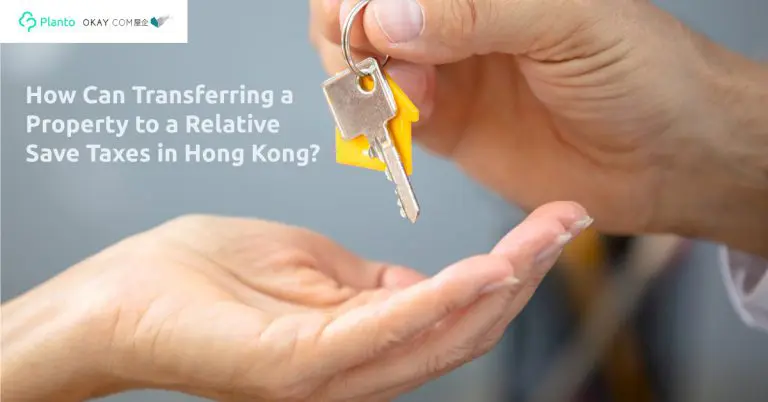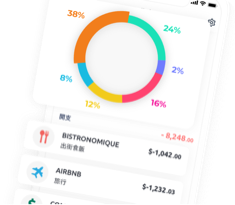Despite ending a rocketing streak, Hong Kong’s home prices still remain one of the most expensive in the world and, hence, stamp duty is a considerable expense for homebuyers. After the implementation of double stamp duty in 2013 and the increase of property stamp for second-home buyers to 15% in 2016, homeowners began transferring the title of a property from joint ownership to single ownership. Doing so enables them to restore the “first-time purchaser” status for one party in order to re-enter the property market without paying the additional tax.
Notably, a study by QFang indicated that transactions involving close relatives constituted over 10% of the second-hand residential transactions in the first seven months of last year. The same study indicated that this has increased in recent months and was 16% of all second-hand sales in July. This may indicate that some buyers are optimistic about the market outlook and are preparing to make a new purchase by restoring their “first-time purchaser” status.
How much can you save with the first-time buyer status?
A person (HKPR) holding a property as a joint proprietor or individual owner may transfer (sell) their ownership of the property to a close relative such as a parent, sibling, spouse or child. This “close relative” status exempts the relative from paying the 15% Ad Valorem Stamp Duty (AVD). The transaction is subject to Stamp Duty based on the determined value of the property, but the person (transferor) becomes eligible for first-time buyer status, exempting them from the 15% (AVD) on a future purchase.
For example, a couple jointly owns a property with a market value of HK$6 million. The husband transfers the title of the property to his spouse. The total amount of tax rate payable is HK$45,000 ($3,000,000 x 1.5%). Later, the husband purchases a residential unit with a market value of HKD$8 million as a first-time buyer, avoiding the 15% AVD (HK$1.2 million), instead paying only the 3.75% stamp duty (HK$300,000). This results in a net tax savings of HK$855,000 compared to what would have been paid had he purchased the property without having transferred ownership of the original property.
Under current laws, the husband may do this repeatedly – buy a property and then transfer it to his wife – and be entitled to the first-time buyer status and exempt from the AVD on each new purchase. Compared with the 15% AVD, the stamp duty applicable to first-time home buyers is much lower, ranging from 1.5% to 4.25%. If the property price is under HK$2 million, only a printing fee of HK$100 is required.
A Similar Tax Saving Trick in First-hand Market
In the first-hand property market, a similar strategy has evolved, with some with prospective buyers “borrowing” their relatives names and registering multiple lottery applications in order to increase their chances of purchasing units. If successful, they can transfer the property ownership from their relative to themselves, typically after waiting three years to avoid being subject to the Special Stamp Duty (SSD), an additional tax payable if you sell or transfer within 3 years of purchase.
These tax-saving strategies are not illegal and sound like no-brainers for anyone seeking to build a portfolio of properties. So why doesn’t everyone (who can afford to buy multiple properties) do this? This approach is obviously beneficial, but one must also pay attention to the risks involved.
4 Risks of Transferring Property
Although transferring property titles helps some buyers to reduce taxes, there are other considerations.
Mortgage Financing
Banks are naturally careful about awarding a mortgage considering the financial strength of all parties involved, particularly for older purchasers or those with multiple properties in their portfolio. In the above example, the husband may qualify for a mortgage when acquiring a property but may later find that the bank will not transfer the mortgage to his wife if she doesn’t meet various stress tests (ie. debt-to-income, etc.). Or the bank may allow the mortgage transfer but at a higher interest rate. In such cases, the husband could provide a personal guarantee on his wife’s mortgage, though again the bank will review the combined financial strength of the two parties. The same applies to a parent transferring ownership to a child. Just as importantly, a family should not undertake more debt (i.e. risk) than they can comfortably support.
Costs
One must consider the costs of the transaction, both the immediate costs (such as attorney’s fees) and costs that may be incurred later. If the mortgage is transferred before the expiry of a penalty period, it may be necessary to return the cash rebate and pay the penalty interest to the bank.
Estate Planning
With joint-ownership, if one party passes away, the ownership automatically transfers to the other. Moving to separate ownership results in a more protracted probate process of the sole owner dies, especially if they do not have an updated will, which then leads to an even more exhaustive intestate court process and potentially legal disputes amongst the family.
Other Tax and Title Considerations
Some owners may attempt to transfer their property at a below-market price (to reduce stamp duty). However, tax authorities have the right to recover the difference, potentially with a penalty. If the title transfer is done as a Deed of Gift (with no money changing hands between the parties), it is still considered a property transfer and subject to the same tax treatment as a sale. Properties transferred via a Deed of Gift are also subject to claims by creditors if the donor declares bankruptcy within 5 years. This title encumbrance can cause complications later, making the property difficult to sell, since banks may be unwilling to provide a mortgage to a new buyer during that 5-year period.
In summary, property transfers are legal ways to reduce your property taxes. However, there are potential complexities to consider and you should engage professional legal and tax advisors to assist you in making an informed decision before employing this strategy. In addition, the Government has indicated that it is closely monitoring such transfers, so stay abreast of the latest policies in case they change.
Note: Illustrations in this article are for reference only and no representation or warranty is made regarding their accuracy. This article in no way represents legal, tax, accounting or investment advice. Readers considering real estate transactions should consult professionals in these areas for advice.
This article is written by OKAY.com and originally published in the author’s website.
Next steps






















